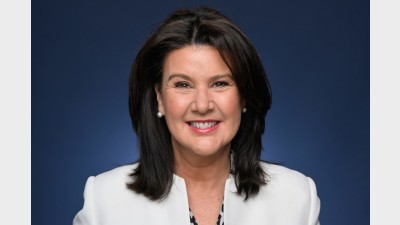NEWS AND RESEARCH
TOP PERFORMING FUNDS
SUPERANNUATION
Australia’s second-largest super fund has confirmed it is expanding its presence in the UK following significant investment in the region....
A member of the super fund has approached ASIC to investigate potentially misleading or deceptive representations by UniSuper regarding the holdings of its sustainable po...
The median growth fund delivered 1.9 per cent in March, adding to the “stunning” rally that has seen super funds gain 11 per cent since November....
Vanguard has affirmed its support for the current super performance test, emphasising the importance of keeping the process straightforward....
While some superannuation funds have gone down the route of internalisation, others say they favour ‘smart partnering’ with external managers for diversification appeal....
PEOPLE & PRODUCTS
Blue Owl Capital, a US asset manager with its eye on ‘marquee investors’ like super funds, has announced the appointment of a senior Future Fund executive as its newest m...
The Association of Superannuation Funds of Australia has appointed a new director representing industry funds, among a number of other appointments in recent months....
A fintech leader has said that AI technologies will have profound implications for the superannuation sector....
The Association of Superannuation Funds of Australia has tapped an experienced public policy executive as head of policy and advocacy....
The firm has welcomed an experienced financial services executive, who helped establish Vanguard's superannuation business, as its new chief financial officer....
FUNDS MANAGEMENT
Over 90 finalists have been chosen to compete at the 36th annual Fund Manager of the Year Awards....
The asset manager is bolstering its investments in the global energy transition and climate opportunities....
The ethical investment manager has reported record FUM as its growth trajectory continues apace....
The chief investment officers of UniSuper, HESTA, and TelstraSuper have elaborated on opportunities and risks that are top of mind when it comes to illiquid assets like p...
In an address to the National Press Club last week, the incoming chair of Australia’s sovereign wealth fund said institutional investors could play a role in the winding ...
FINANCIAL ADVICE
While the Financial Advice Association Australia said it supports a performance testing regime “in principle”, it holds reservations about expanding this scope to retirem...
The Joint Associations Working Group, which counts FSC in its ranks, has issued an urgent warning to the government. ...
Senator Jane Hume will join the speaker lineup at the inaugural Australian Wealth Management Summit. ...
The peak body for the superannuation industry says that intra-fund advice should be widened to cover the transition to retirement....
Rest plans to offer its members a collectively charged digital advice tool, as well as access to phone-based ‘qualified advisers’ to assist members adopting the digital p...
INSTITUTIONAL INVESTMENT
The property group, owned by industry super fund Aware Super, has announced two new projects with a total construction value of $320 million that will add more than 700 h...
While institutional investors, including super funds, unanimously acknowledge the energy transition as a significant challenge, their perspectives on the extent of their ...
Despite a period of increased volatility, several considerations suggest that the bull market will remain intact and the trend in shares will remain up, an economist has ...
HESTA has slammed Woodside’s climate transition action plan, pointing to “significant” gaps....
All merger proposals will have to be approved by the consumer watchdog under the sweeping merger reforms announced by the government on Wednesday....
INSURANCE
The $135 billion fund has transitioned away from TAL Life Insurance following an “extensive tender process”....
The $80 billion fund is facing legal action over allegedly signing up new members to income protection insurance by default without active member consent....
In a Senate submission, the Financial Services Council has once again called for further clarification that the government will assess the consumer outcomes of group insu...
The Federal Court has ruled in favour of QSuper regarding non-payment of a total and permanent disablement benefit to a member....
Accusing Labor of ‘drip-feeding’ the idea to suit them politically, the Greens has announced its support for planned changes to super tax concessions will be contingent ...



































From my perspective, 40- 50% of people are likely going to be deeply unhappy about how long they actually live. ...
Super director remuneration ...
No doubt true, but most of it is still because over 45’s have been upgrading their houses with 30 year mortgages. Money ...